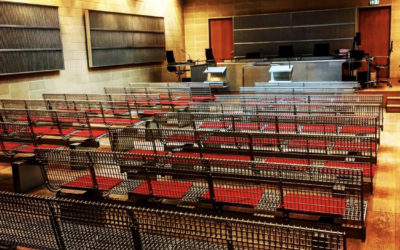refineries blockade: strike and bailiff
 At a time when the country is paralysed in part by the blocking of refineries, and even if it is not up to us to judge the validity of the demonstrators' claims, it seems important to us to take stock of the exercise of the right to strike, its limits and the cases of intervention by the bailiff, at the request of the striking employers or employees.
At a time when the country is paralysed in part by the blocking of refineries, and even if it is not up to us to judge the validity of the demonstrators' claims, it seems important to us to take stock of the exercise of the right to strike, its limits and the cases of intervention by the bailiff, at the request of the striking employers or employees.
What's a strike?
First of all, let us remember that the principle is that any employee of a company can use his or her right to strike. However, an employee cannot strike alone, unless he or she accompanies a national strike. However, it is not necessary for the majority of employees or all employees in the enterprise to participate in the strike.
To be valid, the strike must meet the following 3 conditions:
- a total stoppage of work, (the strike may be of short duration (1 hour or even less) or it may continue for a long period (several days or weeks). It can be repeated. For example, a total and concerted work stoppage of 1/4 hour every hour for 10 days is a normal exercise of the right to strike).
- a consultation of the employees, therefore a collective will (the call of a trade union to strike is not necessary),
- professional claims (e.g. wage claims, relating to working conditions or the defence of employment).
When does a strike become illegal?
If the three conditions listed above are not met, there is no normal exercise of the right to strike but an unlawful movement. This is the case, for example, in the following cases:
- beaded strikes (work done at idle or under deliberately faulty conditions),
- strikes limited to a particular obligation of the employee's employment contract (on-call hours for example),
- successive actions leading to the blocking of the company without collective and concerted work stoppage,
- strikes based solely on political motives.
The employee participating in an unlawful movement is not protected by the right to strike. He or she risks disciplinary action and can be dismissed without the employer having to prove gross misconduct.
Is it necessary to respect a notice period?
Except in special cases, in the private sector, employees who want to use their right to strike do not have to give notice.
A strike is lawful even if it has not been preceded by a warning or an attempt at conciliation with the employer.
The strike: what consequences?
Strikers must respect the work of non-strikers.
Blocking access to a site, occupying premises to prevent the work of non-strikers are abusive acts. The same applies to the degradation of premises or equipment. Such actions are illegal and can therefore be criminally sanctioned, as can acts of violence against the company's management or staff.
Unions and strikers are responsible for abuses committed during a strike. The employer and non-strikers may seek redress in court, including before the industrial tribunal or the criminal court.
A strike suspends the employment contract but does not terminate it, except in the case of gross negligence on the part of the employee (personal and active participation in illegal acts).
No employee may be sanctioned or discriminated against (e.g. in terms of promotion) for having gone on strike under legal conditions. Any dismissal for cause on this basis is null and void.
The employer deducts a portion of the employee's wages and any additional costs (for example, travel expenses) from the employee's pay. The amount deducted from the employee's pay must be proportional to the length of the work stoppage. A higher deduction is not permitted.
However, in some cases, the employer must pay the strikers their wages (if the strike is caused by a serious and deliberate failure by the employer to meet its obligations or if an agreement to end the strike has provided for this).
The employer must provide work for non-strikers and pay them unless he can prove that he was unable to operate the business.
In the event of picketing or occupation of the premises, the employer is only relieved of its obligation to pay non-strikers if it has brought an action to have the strikers evicted.
When to call a bailiff?
Striking employees can, on the one hand, ask a bailiff to have the employer's shortcomings noted:
- pre-strike: to have the employer's serious and deliberate failure to meet its obligations established; or
- either at the time of the strike: for example, to have the intervention of temporary workers noted in order to continue production; or
Non-striking employees can call upon a bailiff to have it established that access to their place of work is prevented to them, either by the strikers or by the management which would have closed the site.
Finally, the employer can call upon a bailiff to establish any possible excesses during a demonstration or a strike (occupation of the premises, beaded strike, blocking of the company, etc...).
The report, drawn up by the bailiff, provides absolute and impartial proof of the progress of the social conflict.
To contact a bailiff for a strike report, you can call your bailiff or use our online appointment platform.


